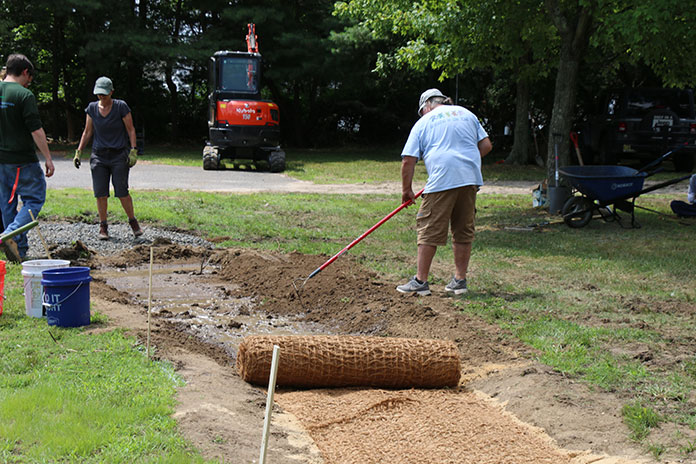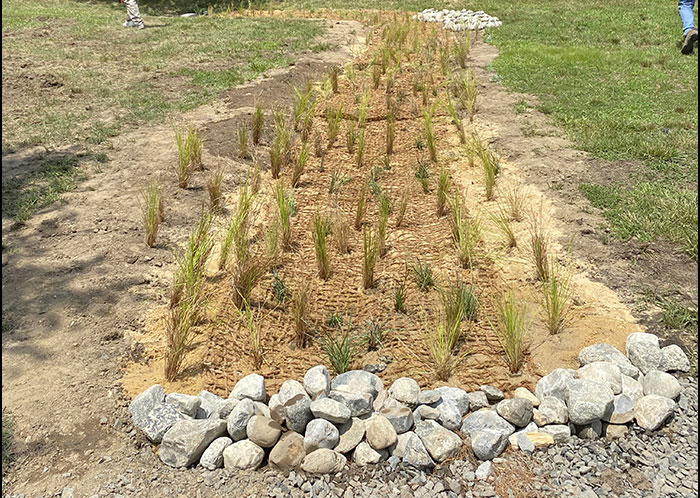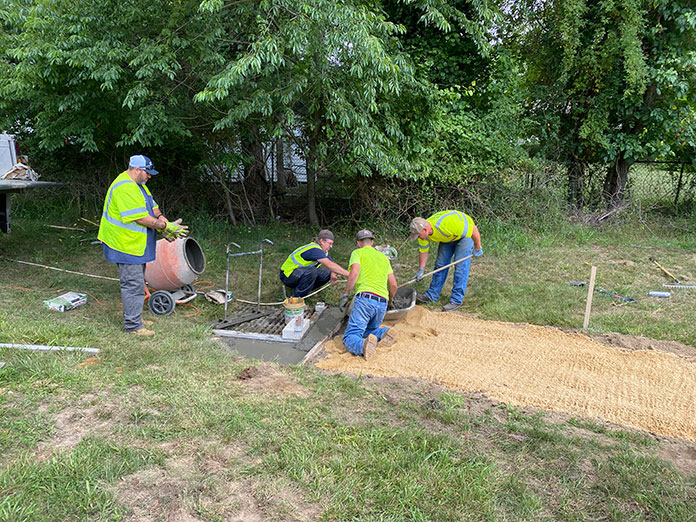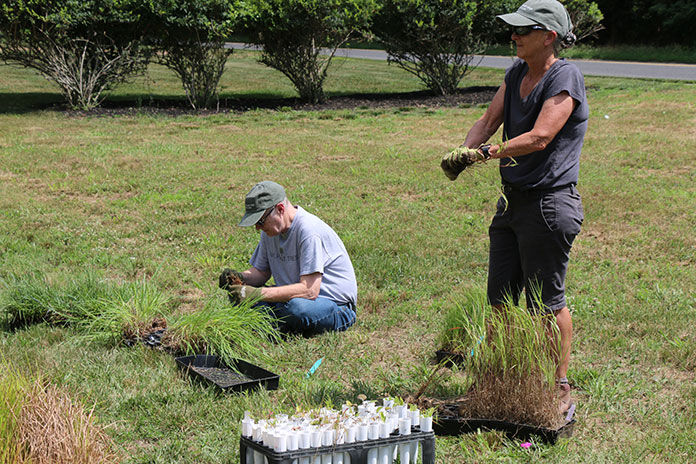
HOWELL – In a collaborative effort led by local volunteers and supported by the Rutgers Water Resources Team, the creation of a community rain garden/bioswale at Monmouth Ridings Park promises a multitude of benefits.
The innovative project aims to manage stormwater effectively while fostering environmental sustainability and enhancing the local ecosystem.
Lisa Doud, who serves as the chair of Howell’s Environmental Commission and is also a member of the Green Team and Shade Team Commission, said that 5-7 community members helped perform the tasks related to the rain garden. Members of the Department of Public Works were also on site to lend their expertise.
“We’re trying to manage stormwater to create green infrastructure practices,” shared Hollie DiMuro, a program associate with the Rutgers Cooperative Water Resources Program. “We are taking the initiative and implementing projects like this all over the state.”
At Monmouth Ridings Park, one of the first steps included the creation of a rock reservoir. DiMuro explained that stormwater would first hit the surface of the pavement of the parking lot and then flow into the rock reservoir.

“We then created a bioswale,” DiMuro continued. “The bioswale conveys stormwater from one point to another. A rain garden actually holds water in it like a bathtub. We’re conveying the water and cleaning the water out before it gets into the catch basin at the bottom.”
As DiMuro spoke, a couple of volunteers were seated in the shade preparing native plants for addition to the new area. The plants were carefully chosen to populate the bioswale and are expected to attract beneficial pollinators and create a welcoming habitat for wildlife.

Rain gardens play a vital role in collecting water runoff from impervious surfaces like rooftops, roads, and sidewalks. By creating a depression within the garden, the collected water is given an opportunity to infiltrate into the soil, facilitating the natural breakdown of harmful pollutants. This not only helps purify the water but also provides a valuable habitat for plants and wildlife.
Bioswales often play a crucial role in channeling water toward a rain garden. Bioswales act as effective conduits in properties where a rain garden is absent, guiding water into existing drainage or storm systems. By working hand in hand, bioswales and rain gardens form a comprehensive system to address stormwater management challenges, promoting sustainable practices and environmental conservation.

Doud said she sees the municipality’s inaugural rain garden/bioswale project as the first of many others. She emphasized the importance of residents working together to build a greener, more sustainable community for generations to come.







